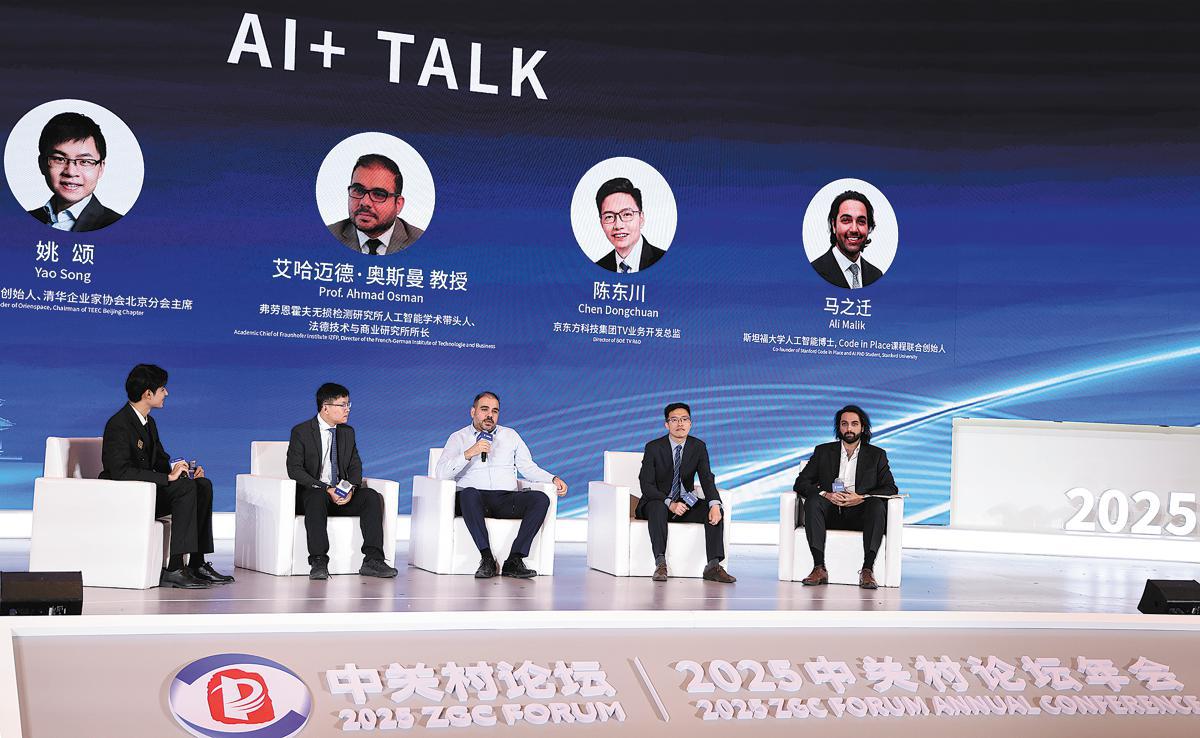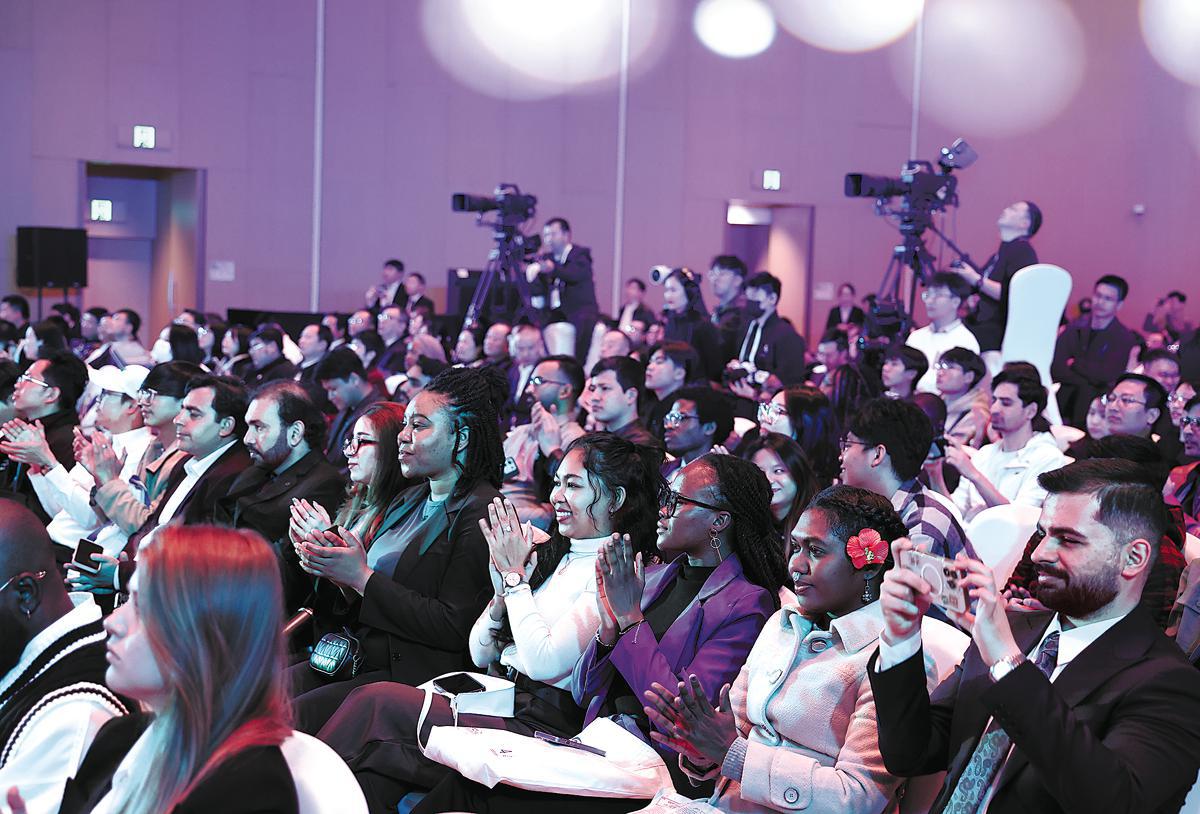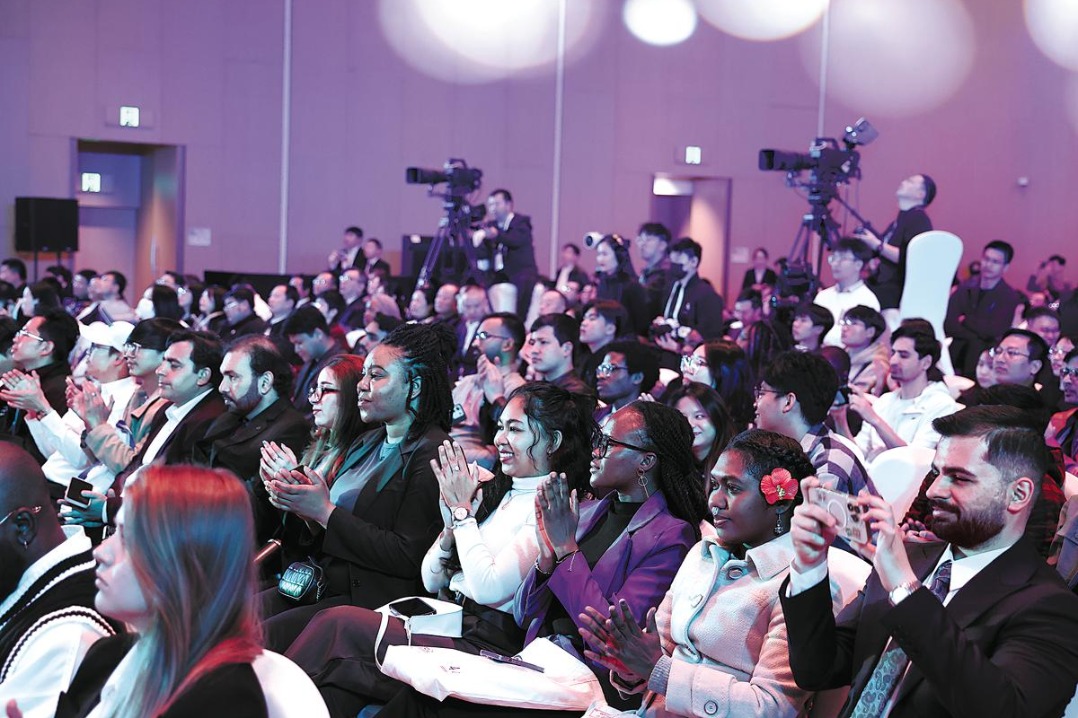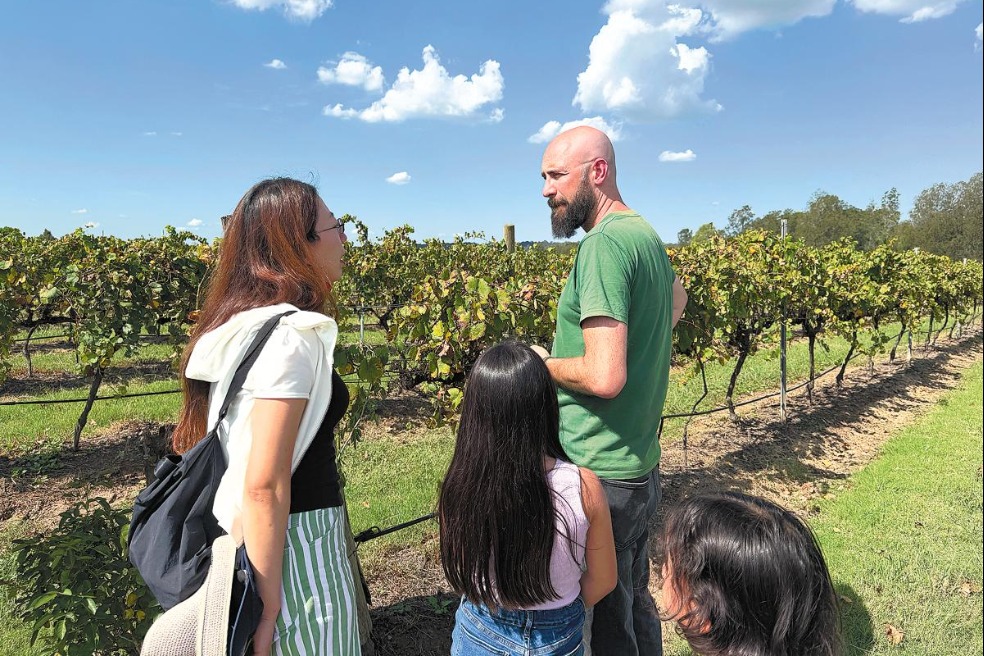Intl forum fosters exchanges for youthful innovators


Chinese scientists and international experts called for greater collaboration among young researchers at the 2025 Beijing International Youth Innovation and Development Forum, emphasizing the crucial role of young people in driving global innovation.
Xiang Tao, an academician of the Chinese Academy of Sciences, said Sunday at the forum that more open platforms for exchange and collaboration are needed to connect young scientists with top-tier global peers.
The YID Forum serves as a global platform for young talent exchange and is aimed at unlocking the potential of young innovators and supporting their development worldwide, aligning with Xiang's vision.
"Many groundbreaking scientific discoveries throughout history have been driven by young researchers," Xiang said, emphasizing the crucial role of young talent in advancing innovation, particularly in fields such as quantum technology.
He noted that more than 85 percent of doctoral researchers at the Beijing Academy of Quantum Information Sciences are under age 36.
"We encourage young people to venture into uncharted territories and pursue cutting-edge innovation," Xiang said. "While this journey may feel isolating, it's important to foster a culture where innovators feel supported and surrounded by like-minded peers."
Caucher Birkar, the 2018 Fields Medalist and a member of the Academy of Europe, echoed Xiang's views from a mathematical standpoint.
"Just as individuals are interconnected, so are mathematical disciplines. In fact, most major mathematical breakthroughs come from collaboration, not the work of a single person," Birkar said. "Thanks to today's technology, collaboration has become much easier, enabling diverse teams to lead research projects together."

During the forum, Zhai Kun, a professor at Peking University's School of International Studies, released the 2025 Global Youth Science and Technology Innovation Development Report. The report examined how "new quality talent" are driving global innovation and boosting productivity.
One such example is Wang He, founder and chief technology officer of Galbot, a humanoid robot company established in Beijing in May 2023.
Wang said the company's robots are designed for cross-industry applications, ranging from logistics and retail to elderly care. Two unmanned 24-hour stores using the robots are already in operation in Beijing.
"China's strong manufacturing capabilities, global demand and AI model partnerships will be key to shaping the future of humanoid robots," Wang said.
The forum concluded with a panel discussion featuring four young AI experts who explored how AI is driving new quality productive forces and creating vast opportunities for youth.
Yao Song, cofounder of the commercial aerospace company Orienspace, said robots should be focused on solving practical, real-world problems.
"Robots should first take on tasks that are undesirable or physically taxing for humans, such as handling explosive materials," he said.
Chen Dongchuan, a director at BOE TV, discussed the role of AI in transforming traditional industries. He said AI enhances image quality in the display sector while also reducing energy consumption.
"While traditional industries have high technical barriers between sectors, AI has made cross-industry technological integration much more accessible," Chen said.
Ali Malik, a doctoral student studying AI at Stanford University, emphasized the importance of integrating AI into education to develop interdisciplinary future leaders. However, he also stressed the need to recognize the role of humanity in social systems, particularly in education.
"Education isn't just about transferring knowledge; it's equally about instilling values," Malik said.
mengwenjie@i21st.cn























